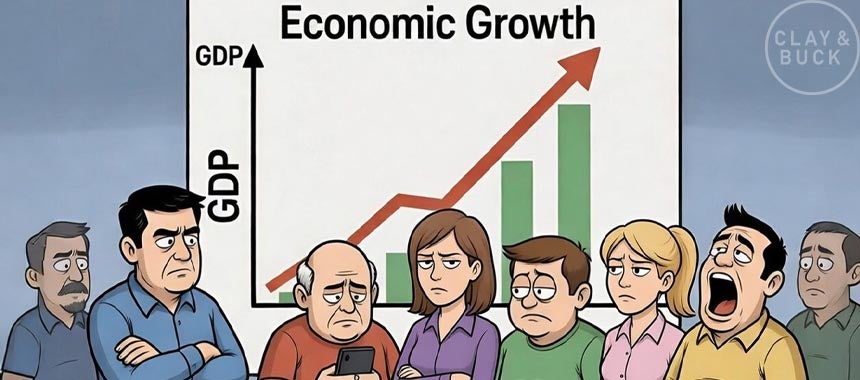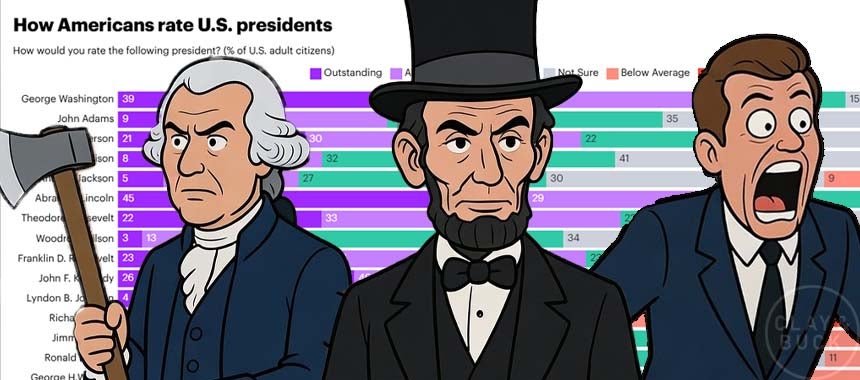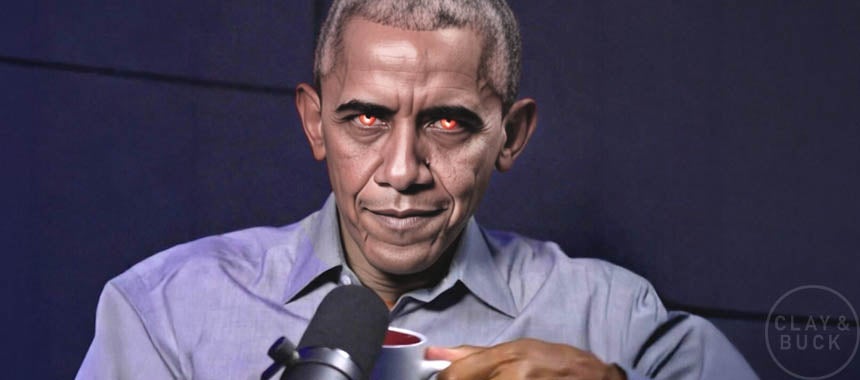Gordon Chang on China’s Role in the Ukraine War
15 Mar 2022
CLAY: We are joined now by Gordon Chang. He’s an author and analyst. His latest article is at Newsweek. It’s “China’s Behind-the-Scenes Role in the Ukraine War,” and he has got a book out, The Coming Collapse of China and The Great U.S.-China Tech War. That is Gordon Chang.
BUCK: They’re both out. I have read them. I highly recommend them.
CLAY: There you go. Both of them are out and ready to be grabbed. You can see ClayAndBuck.com we’ve got links to both on our website. Gordon, appreciate you joining us. What is going on? Big-picture question here: What is going on behind the scenes as it pertains to the relationship between Russia and China and how is it setting a president potentially in Ukraine for what might happen going forward both in Taiwan and around the world based on what I think it’s fair to call an unholy alliance between these two countries?
CHANG: Oh, it certainly is an unholy alliance, and Beijing and supporting Vladimir Putin pretty much to the hilt. You know, we hear a lot about how Chinese officials — and they’re usually mid- to lower-level ones — express concern about China’s support for Vladimir Putin. But these guys don’t have any power. The guy who does have power, Xi Jinping, the ruler, is fully supporting the Russian war effort.
 They’re doing this in a number of ways. There are these enhanced commodity purchases — oil, gas, wheat, coal — but also, it’s China’s making its financial system available to Russian institutions that have been kicked out of SWIFT, had their dollar accounts frozen. Also, China’s made its diplomats at the service of the Kremlin. And this is something which we often overlook, but China’s propaganda machine is all-in for the ludicrous, absurd notions that Russia is trying to propagate. So this is an effort where Beijing is fully behind the Russians.
They’re doing this in a number of ways. There are these enhanced commodity purchases — oil, gas, wheat, coal — but also, it’s China’s making its financial system available to Russian institutions that have been kicked out of SWIFT, had their dollar accounts frozen. Also, China’s made its diplomats at the service of the Kremlin. And this is something which we often overlook, but China’s propaganda machine is all-in for the ludicrous, absurd notions that Russia is trying to propagate. So this is an effort where Beijing is fully behind the Russians.
BUCK: Gordon, how should the Biden administration approach China on these issues? There have been some long talks, as I understand it, already between intermediaries of the U.S. State Department, the Chinese Communist Party. What is realistic? Right now we hear whether it’s from the West Wing or from the State Department spokesperson, we hear them saying, “Well, we’re telling China how awful the humanitarian situation is in Ukraine.” That doesn’t feel like it’s gonna get the Chinese Communist Party to act. What could, what leverage do we have, and what should we do with China?
CHANG: The leverage that we have is to freeze the dollar accounts of Chinese institutions. That would actually get China’s attention because probably it would lead to a failure of the Chinese financial system, the Chinese economy, and maybe even the Communist Party itself. So that would get their attention, and I think that’s what we should do because Beijing is, as we’ve just discussed, all-in for the war effort, which means that China is supporting the killing of pregnant mothers and also their children.
 This is really horrible, and you’re right. Trying to play to the humanitarian instincts of Chinese leaders never works, because these guys are happy to kill millions. And, in fact, Xi Jinping has killed millions by spreading covid-19 beyond his borders. That’s more than six million people outside of China have been killed by a disease which should never have escaped the central portion of that country.
This is really horrible, and you’re right. Trying to play to the humanitarian instincts of Chinese leaders never works, because these guys are happy to kill millions. And, in fact, Xi Jinping has killed millions by spreading covid-19 beyond his borders. That’s more than six million people outside of China have been killed by a disease which should never have escaped the central portion of that country.
CLAY: Gordon — and I’m glad you brought that up — China is still trying to adopt a Covid Zero policy when it appears the rest of the world has given up on that idea. What is the impact of covid still likely to be in China? They’ve now locked down tens of millions of people. The price of oil has dropped precipitously after surging, partly because the idea is that they’re not going to be able to consume as much oil as maybe was anticipated. What’s going on with Covid Zero? Can China continue to have that as a goal, given the rapid proliferation of the Omicron variant?
CHANG: Yeah, 37 million people locked down, large portions of the economy just have been shut, and the reason why Beijing does this has nothing to do with disease. It’s because the spread of the disease is a threat to the Communist Party. The party has made its control of covid-19 a matter of legitimacy. They did that in around March of 2020 when they were criticizing the democracies like ours for not being able to control the disease.
And they said it was a failure of democratic governance and that their Communist totalitarianism was superior when it came to disease control. So now you have these diseases raging in China, and in the United States and elsewhere, basically life is returning to normal. So the Communist Party views this as a mortal threat.
 BUCK: Gordon Chang, everybody. We’re speaking to him about what’s going on with China and Russian situation right now. Go to GordonGChang.com for more of his analysis. You can also follow him on Twitter. Gordon, are we seeing something of a realignment, in your view, here, or just perhaps a strengthening of one that already existed between China, Russia, and the changing of the global financial world order?
BUCK: Gordon Chang, everybody. We’re speaking to him about what’s going on with China and Russian situation right now. Go to GordonGChang.com for more of his analysis. You can also follow him on Twitter. Gordon, are we seeing something of a realignment, in your view, here, or just perhaps a strengthening of one that already existed between China, Russia, and the changing of the global financial world order?
Wall Street Journal reporting just earlier this morning that Saudi Arabia is now thinking about changing its sale of oil to China so that it will be denominated in yuan rather than dollars. This sounds like a pretty big development considering people have been worried about the reserve status of U.S. currency for a long time.
CHANG: Yes. I worry a lot about China. That’s one thing I do not worry about. China today accounts for less than 5% of Global Payments, which has basically stayed the same for a very long time while people have worried about this. Now, of course, if Saudi Arabia started accepting renminbi for oil, that would change that. But the renminbi can’t challenge the dollar for about three reasons.
First of all, it’s not convertible on the capital account, and it’s barely convertible on a current account as a practical matter. You then also have the Chinese central bank is not trusted to administer the currency fairly, which is what you need for a global reserve currency. Also, to have a global reserve currency, you have to have a lot of that currency outside your country.
To do that, you have to run consistent current or capital account deficits. China runs surpluses and has to do that in order to defend its system. So the Chinese can talk about this all the time, China’s friends on Wall Street with talk about this all the time, but until China makes this currency convertible, it just ain’t gonna happen.
CLAY: Gordon, there’s been a lot of reporting about — and we started off talking about the unholy alliance between Russian and China. And there has been reporting that China was aware of what was going on in terms of the invasion of Ukraine and that Vladimir Putin, because we saw them together — Chairman Xi and Vladimir Putin, at the Beijing Olympics — that there may have been an agreement not to invade until Olympics were over in China. Do you believe that China was intimately aware of the plans associated for the invasion of Ukraine, that they were held back by the Olympics? And if so, what does this further say about China’s role in this invasion?
 CHANG: China, I think, did know about the plans and did prevail upon Vladimir Putin to delay the invasion. Remember, the Olympics ended February 20, and Putin invaded February 24th. You’re referring to the New York Times reporting, which is credible, and this corresponds to other things that we know about the relationship between China and Russia during that period. So I think that we have to assume that China was in on the invasion planning.
CHANG: China, I think, did know about the plans and did prevail upon Vladimir Putin to delay the invasion. Remember, the Olympics ended February 20, and Putin invaded February 24th. You’re referring to the New York Times reporting, which is credible, and this corresponds to other things that we know about the relationship between China and Russia during that period. So I think that we have to assume that China was in on the invasion planning.
BUCK: Gordon Chang, everybody. GordonChang.com. Follow him on Twitter. Gordon, thanks so much.
CHANG: Thank you. I really appreciate it.
Recent Stories

VIP Video: Newsom Compares ICE to Nazis in GERMANY
The Democrats always have nothing but comparing their opponents to Nazis.

Senator Ron Johnson Talks Fiery ICE Hearing, the SAVE Act and Much More
The Wisconsin senator tells us what's behind disastrous Democrat policies the GOP is trying to fix.

More Great Economic Data Comes In, But Will Voters Feel It by November?
Will Americans feel this in their own lives in time for the midterms?







